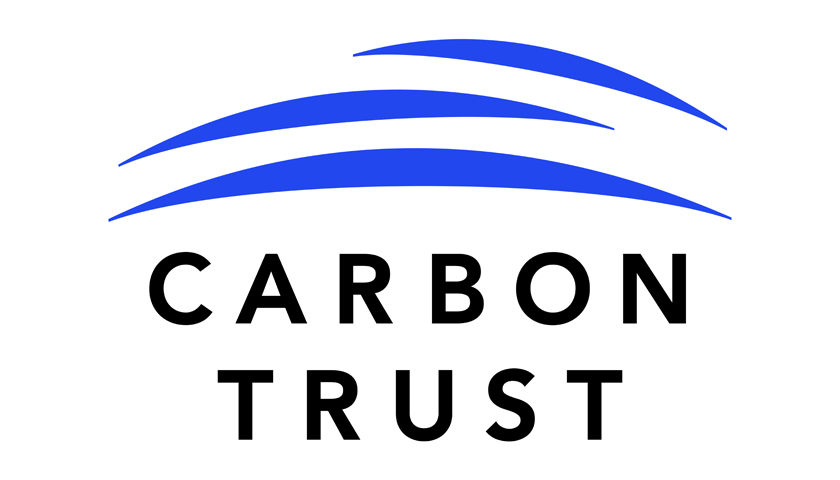The Carbon Trust is pleased to see over $10m of R&D funding being awarded to accelerate the deployment of offshore wind technology in the US. The National Offshore Wind Research and Development Consortium (NOWRDC) has today announced the selection of twelve projects that will be progressed into the contract negotiation phase.
Jan Matthiesen vice chair of NOWRDC’s board and director at the Carbon Trust said,
“NOWRDC is really picking up the pace, and it is encouraging to see such a high calibre of projects being announced through the consortium, which was modelled on Carbon Trust’s flagship Offshore Wind Accelerator programme. We are proud to support the efforts of the National Offshore Wind R&D Consortium, and look forward to working with all grant awardees over the coming months.”
The National Offshore Wind Research and Development Consortium was established in 2018 when Carbon Trust, RCG and the New York State Energy Research and Development Authority were awarded $18.5 million from the U.S. Department of Energy (DOE).
The National Offshore Wind Research and Development Consortium (“the Consortium”) today announced selection of twelve projects for contract negotiation, completing its first solicitation for offshore wind research and development technology projects. The twelve awards totaling $10.3 million will support a variety of research areas, including comprehensive U.S. supply chain analyses, studying the impacts of offshore wind on the electric grid system, and innovations in anchoring structures.
“The Consortium is excited to advance offshore wind deployment in the U.S. by supporting these innovation and research projects,” said Carrie Cullen Hitt, Executive Director, National Offshore Wind Research and Development Consortium. “Today’s announcement builds on our collective commitment to drive down costs and make offshore wind more a competitive alternative in generating energy.”
Vincent Schellings, GM for Engineering & Product Development, Offshore Wind at GE Renewables, said, “The National Offshore Wind Research and Development Consortium is a model for how you bring public and private sector interests together to advance our clean energy future. Through the Consortium, we’re able to harness critical funding resources and focus them on the right initiatives to advance the offshore industry and ultimately expand the US supply chain in ways that attract new jobs and private sector investments.”
The Consortium’s efforts were realized through a competitive solicitation which closed in December 2019. The awarded projects include:
- Demonstration of Shallow-Water Mooring Components for FOWTs (ShallowFloat), Principal Power, Inc.
- Design and Certification of Taut-synthetic Moorings for Floating Wind Turbines, University of Maine
- Dual-Functional Tuned Inerter Damper for Enhanced Semi-Sub Offshore Wind Turbine, Virginia Tech University
- Innovative Anchoring System for Floating Offshore Wind, Triton Systems, Inc
- Techno-Economic Mooring Configuration and Design for Floating Offshore Wind, University of Massachusetts Amherst
- Development of Advanced Methods for Evaluating Grid Stability Impacts, National Renewable Energy Laboratory
- Development of a Metocean Reference Site near the Massachusetts and Rhode Island Wind Energy Areas, Woods Hole Oceanographic Institute
- Enabling Condition Based Maintenance for Offshore Wind, General Electric
- Physics Based Digital Twins for Optimal Asset Management, Tufts University
- Radar Based Wake Optimization of Offshore Wind Farms, General Electric
- Survival Modeling for Offshore Wind Prognostics, Tagup, Inc.
- 20GW by 2035: Supply Chain Roadmap for Offshore Wind in the US, National Renewable Energy Laboratory
In addition to these projects, eight projects previously received funding from the Consortium last year, bringing the total projects funded to over $17.3 million. The full listing of the projects that have been funded by the Consortium is available here.
“Triton System Inc., a Massachusetts small business, is pleased to receive a project award from the National Offshore Wind Research and Development Consortium. The award represents an important part of the development of our innovative anchoring system, which will accelerate the deployment of more cost-effective offshore wind platforms here in the U.S.,” said Mr. Zachary Miller, Triton Anchoring System Lead.
“Our hearty congratulations to the grant recipients, as well as the Consortium managers, staff, and DOE on this latest round of awards,” said Massachusetts Clean Energy Center CEO Steve Pike. “These research projects demonstrate the role that research and innovation play in improving the cost-effectiveness and environmental responsibility of offshore wind in its important role for our energy future.”
“Virginia is proud to provide our resources and expertise to a number of the projects awarded in this solicitation. Virginia’s deep history of marine-based research and development will contribute to the success and growth of the U.S. offshore wind industry and we are pleased to support Consortium strategies and these important projects,” said John Warren, Director of the Virginia Department of Mines, Minerals and Energy.
The National Offshore Wind Research and Development Consortium was established in 2018 when the New York State Energy Research and Development Authority (NYSERDA) was awarded $18.5 million from the U.S. Department of Energy (DOE). As the first federally-funded public-private partnership focused on advancing offshore wind technology in the United States, the Consortium, as a not-for-profit organization, supports cost-effective and responsible development of offshore wind to maximize economic benefit to the United States. The Commonwealths of Virginia, Massachusetts, and the State of Maryland also contribute to the Consortium’s funding. NYSERDA administered the initial solicitation on behalf of the Consortium.
